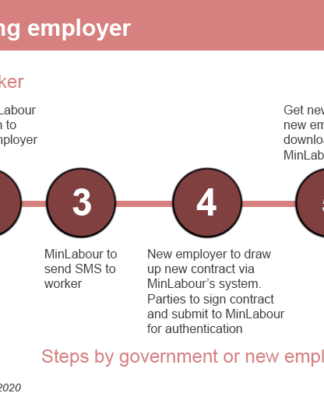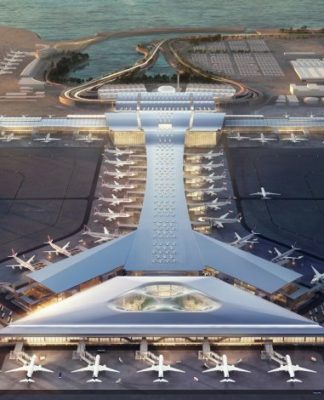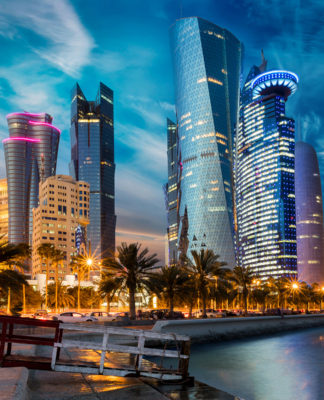President Trump’s executive order barring nearly all refugees from entering the United States has been in effect for less than 24 hours. But it has already upended the lives of real people. It’s keeping families apart and destroying their plans to continue — or rebuild — their lives.
In New York, two Iraqi refugees, Hameed Khalid Darweesh and Haider Sameer Abdulkhaleq Alshawi, were detained overnight at John F. Kennedy International Airport.
Both of these men worked with the US military and contractors in Iraq. Their lives were threatened as a result. According to the legal complaint filed on behalf of the two men, Darweesh had his home raided by militia-affiliated police, while two of his coworkers were killed “as soon as they arrived at work”; he had to move twice during his time working with the US for his safety. Alshawi’s brother-in-law (who worked with Alshawi) was killed by an IED placed on a family car.
These horrible events were the direct result of helping the United States. And America turned its back on them in return. (Darweesh was released from detention Saturday afternoon, though it’s not yet clear whether he’ll be allowed to stay in the US.)
These men are just two examples of many that began to come into focus within a day of the order’s signing. A Syrian refugee family was scheduled to fly to Cleveland from a Turkish refugee camp on Tuesday, only to have their travel — and their plan to rebuild their lives — scrapped. An Iranian genomics researcher tweeted Saturday morning that she was excited to start her new job in a Boston lab, but hadn’t been allowed to get on the plane.
These are just the examples we know of. We do not know the full extent to which this policy is already wrecking lives. But we do know that it will continue to do real damage.
The term “Muslim ban” has been a political football for over a year. To some supporters and opponents alike, it was just campaign rhetoric — something to be taken figuratively, not literally. It was a stand-in for fears of Trump’s base, a way to communicate with them at an emotional level.
That’s over.
America crossed a point of no return Friday night. We have made a mockery — not for the first time, but in a way no one living here today can ignore — of our claim to be a beacon of light, a place for huddled masses to take refuge.
Alshawi’s wife and 7-year-old son live in Texas. He had received a refugee visa to be reunited with them from Sweden. The New York Times found Alshawi’s wife in her sister’s house in Texas, crying on the living-room couch:
She pulled out her cellphone and flipped through her pictures. She wanted to show a reporter a picture she had taken of her son’s letter to Santa Claus. In November, at a Macy’s Santa-letter display at a nearby mall, the boy wrote out his wish: “Dear Santa: Can you bring my Dad from Sweden pls.” He has not seen his father in three years.
“I’m really breaking down, because I don’t know what to do,” she said. “It’s not fair.”
She and her relatives had not told her son that his father was finally coming to Houston and that the son’s wish to Santa was about to come true. “It was a surprise for him,” she said.
In Washington, Murtahda Al-Tameemi managed to avoid getting detained and rejected by Border Patrol agents; he was in Canada “to watch his little brother perform in a high-school play” (according to McClatchy’s Hannah Allam) when he heard about the forthcoming order, and returned to the US just in time. But now, he knows he won’t be able to see the rest of his family:
An Iraqi-born software engineer at Facebook’s Seattle office, Al-Tameemi, 24, spent eight years alone in the United States before his family was resettled in 2015 right across the border in Canada. The short commute has allowed the family to spend weekends and holidays together, making up for the years stolen by war.
Now, with the stroke of a pen, Trump has turned that three-hour trip from Seattle to Vancouver into an impassable route. As Iraqi refugees, Al-Tameemi’s family can’t visit him in the United States. And as an Iraqi on a work visa, Al-Tameemi can no longer pop over to Canada – he wouldn’t be allowed to return.
Other legal immigrants, including permanent residents (green-card holders), aren’t so lucky. Reports are already circulating of green-card holders who are trying to return to the US from abroad getting denied entry. “We had a few folks land who landed right around the time the order was issued, who were permitted to go through,” Abed Ayoub of the Arab American Anti-Discrimination Committee told the New York Daily News. “I guess it was the luck of the draw.”
The horrible truth is that, as sudden and disruptive as the order was when it was released and immediately implemented Friday night, it wasn’t unforeseen. President Trump has been threatening some form of immigration restriction from the Muslim world since before the Iowa caucuses; he ran against Hillary Clinton on a promise to curb immigration to the US from particular countries the government deemed unsafe.
This is just the beginning of a very long political and policy battle. The ban on immigrants from the seven targeted countries will last at least 90 days; the ban on refugees will last for months. The lawsuit on behalf of the Iraqi refugees detained at JFK airport, and the other lawsuits that will inevitably follow, will take who-knows-how-long to resolve. We don’t yet know how this story is going to end.
But we can’t unwrite the beginning. These things have happened. America has done these things.
We are beyond the debate over taking something seriously or taking it literally. It is happening, now — it is beyond words entirely. And it is more than serious. It is a tragedy.






























